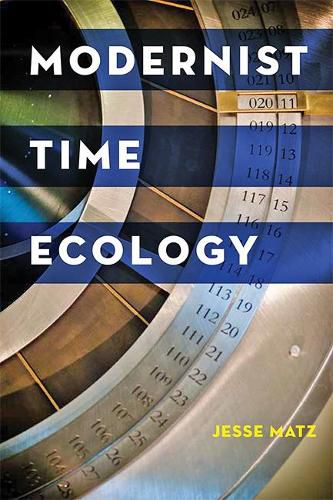Readings Newsletter
Become a Readings Member to make your shopping experience even easier.
Sign in or sign up for free!
You’re not far away from qualifying for FREE standard shipping within Australia
You’ve qualified for FREE standard shipping within Australia
The cart is loading…






A new view of the way modernist fiction writers tried to solve the problem of time.
Do our fictions transform time? Do they cultivate the temporal environment? Such was the hope-or the fantasy-at work in many modernist novels for which time was not only the major subject but also an object of reparative aspiration. Aimed at a kind of stewardship of time, these fictions constitute a practice of modernist time ecology: an effort to restore those landscapes of time that have been thrown into crisis by modernity.
In Modernist Time Ecology, Jesse Matz redefines temporal experimentation in central writers like Proust, Mann, Woolf, Ellison, and Cather, who developed literary forms to cultivate, restore, and enrich the temporal environment. He brings fresh attention to others who best exemplify this ecological motive, arguing that E. M. Forster, J. B. Priestley, and V. S. Naipaul are leading figures in this practice of temporal redress. Matz also reveals how contemporary film, social media movements, and public service efforts show what has become of the modernist interest in temporal stewardship.
Matz combines an array of disciplines-including narrative theory, sociology, phenomenology, cognitive psychology, film studies, queer theory, and environmental studies-to theorize and explain the rationale and the limits to the idea that time might be subject to textual cultivation. Modernist Time Ecology is a deeply interdisciplinary book that changes what we think literature and the arts can do for the world at large.
$9.00 standard shipping within Australia
FREE standard shipping within Australia for orders over $100.00
Express & International shipping calculated at checkout
A new view of the way modernist fiction writers tried to solve the problem of time.
Do our fictions transform time? Do they cultivate the temporal environment? Such was the hope-or the fantasy-at work in many modernist novels for which time was not only the major subject but also an object of reparative aspiration. Aimed at a kind of stewardship of time, these fictions constitute a practice of modernist time ecology: an effort to restore those landscapes of time that have been thrown into crisis by modernity.
In Modernist Time Ecology, Jesse Matz redefines temporal experimentation in central writers like Proust, Mann, Woolf, Ellison, and Cather, who developed literary forms to cultivate, restore, and enrich the temporal environment. He brings fresh attention to others who best exemplify this ecological motive, arguing that E. M. Forster, J. B. Priestley, and V. S. Naipaul are leading figures in this practice of temporal redress. Matz also reveals how contemporary film, social media movements, and public service efforts show what has become of the modernist interest in temporal stewardship.
Matz combines an array of disciplines-including narrative theory, sociology, phenomenology, cognitive psychology, film studies, queer theory, and environmental studies-to theorize and explain the rationale and the limits to the idea that time might be subject to textual cultivation. Modernist Time Ecology is a deeply interdisciplinary book that changes what we think literature and the arts can do for the world at large.